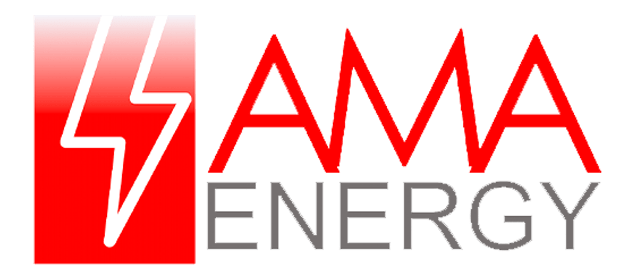In the dynamic world of global commerce, businesses face a myriad of challenges when it comes to entering new markets, complying with regulations, and managing tariffs. This is where Markets, Regulatory, and Tariff Consultancy services play a crucial role. These specialized services provide businesses with the knowledge, insights, and strategies needed to navigate complex market landscapes, adhere to regulatory requirements, and optimize tariff structures. In this article, we delve into the significance of Markets, Regulatory, and Tariff Consultancy, exploring how they help businesses thrive in today’s interconnected economy.
Understanding Markets, Regulatory, and Tariff Consultancy
Markets, Regulatory, and Tariff Consultancy services encompass a range of expertise aimed at assisting businesses in expanding into new markets, understanding regulatory frameworks, and managing tariffs effectively. These services are particularly essential for companies engaged in international trade, where navigating diverse markets and regulatory environments is essential for success.
Market Consultancy: Market consultancy services provide businesses with valuable insights into new markets. This includes market research, analysis of consumer trends, competitor intelligence, and identification of growth opportunities. Market consultants help businesses make informed decisions about market entry strategies, product positioning, and market expansion.
Regulatory Consultancy: Regulatory consultancy focuses on helping businesses understand and comply with the myriad of regulations that govern their industries. This includes local, national, and international regulations related to product safety, labeling, environmental standards, data protection, and more. Regulatory consultants ensure that businesses meet compliance requirements, avoid costly penalties, and maintain a positive reputation.
Tariff Consultancy: Tariff consultancy services assist businesses in optimizing their import and export costs through a thorough understanding of tariff structures and trade agreements. Tariff consultants analyze customs duties, trade barriers, preferential trade agreements, and tax implications to help businesses minimize costs and maximize profitability in international trade.
The Role of Markets, Regulatory, and Tariff Consultancy
Market Expansion: For businesses looking to expand into new markets, Market Consultancy provides invaluable insights. Consultants conduct market research to identify growth opportunities, assess market demand, analyze consumer behavior, and evaluate competitive landscapes. This information enables businesses to develop effective market entry strategies and tailor their products or services to meet local market needs.
Regulatory Compliance: Regulatory Consultancy ensures that businesses comply with the extensive and often complex regulations governing their industries. Consultants stay abreast of regulatory changes, assess the impact on businesses, and provide guidance on compliance strategies. This includes assistance with obtaining permits, licenses, certifications, and ensuring that products meet safety and quality standards.
Tariff Optimization: Tariff Consultancy helps businesses optimize their import and export costs, which can significantly impact profitability. Consultants analyze tariff schedules, customs duties, trade agreements, and preferential trade arrangements to identify cost-saving opportunities. By strategically managing tariffs, businesses can reduce costs, improve competitiveness, and enhance their bottom line.
Benefits of Markets, Regulatory, and Tariff Consultancy
Strategic Decision-Making: Consultancy services provide businesses with the information and analysis needed to make strategic decisions. Whether it’s entering a new market, launching a new product, or expanding operations, businesses can make informed choices based on market insights and regulatory requirements.
Risk Mitigation: By staying compliant with regulations and optimizing tariffs, businesses can mitigate risks associated with non-compliance and excessive import/export costs. This includes avoiding penalties, legal issues, supply chain disruptions, and reputational damage.
Cost Savings: Tariff Consultancy helps businesses minimize import and export costs, leading to significant cost savings. Consultants identify opportunities for duty drawback, preferential tariff rates, and tax incentives, ensuring that businesses operate efficiently and competitively.
Access to Expertise: Markets, Regulatory, and Tariff Consultancy services provide businesses with access to specialized expertise and industry knowledge. Consultants bring years of experience and understanding of diverse markets and regulatory environments, offering valuable insights and strategies tailored to each client’s needs.
Considerations for Businesses
When considering Markets, Regulatory, and Tariff Consultancy services, businesses should:
Assess Needs: Identify specific areas where consultancy services are needed, such as market research, regulatory compliance, or tariff optimization.
Research Providers: Conduct thorough research to find reputable consultancy firms with expertise in the relevant industries and markets.
Evaluate Experience: Look for consultants with a proven track record of success and experience working with businesses similar to yours.
Define Objectives: Clearly define objectives and expectations for consultancy services to ensure alignment with business goals.
Communication and Collaboration: Maintain open communication with consultants and collaborate closely to leverage their expertise effectively.
Conclusion
In an increasingly interconnected global economy, Markets, Regulatory, and Tariff Consultancy services are indispensable for businesses aiming to thrive in diverse markets while adhering to complex regulatory frameworks. These services provide businesses with the knowledge, insights, and strategies needed to expand into new markets, ensure regulatory compliance, and optimize import/export costs.
By leveraging Markets, Regulatory, and Tariff Consultancy, businesses can make informed decisions, mitigate risks, reduce costs, and ultimately enhance their competitiveness and profitability in the global marketplace. As businesses continue to navigate evolving market landscapes and regulatory environments, the role of consultancy services remains pivotal in driving success and sustainable growth.


